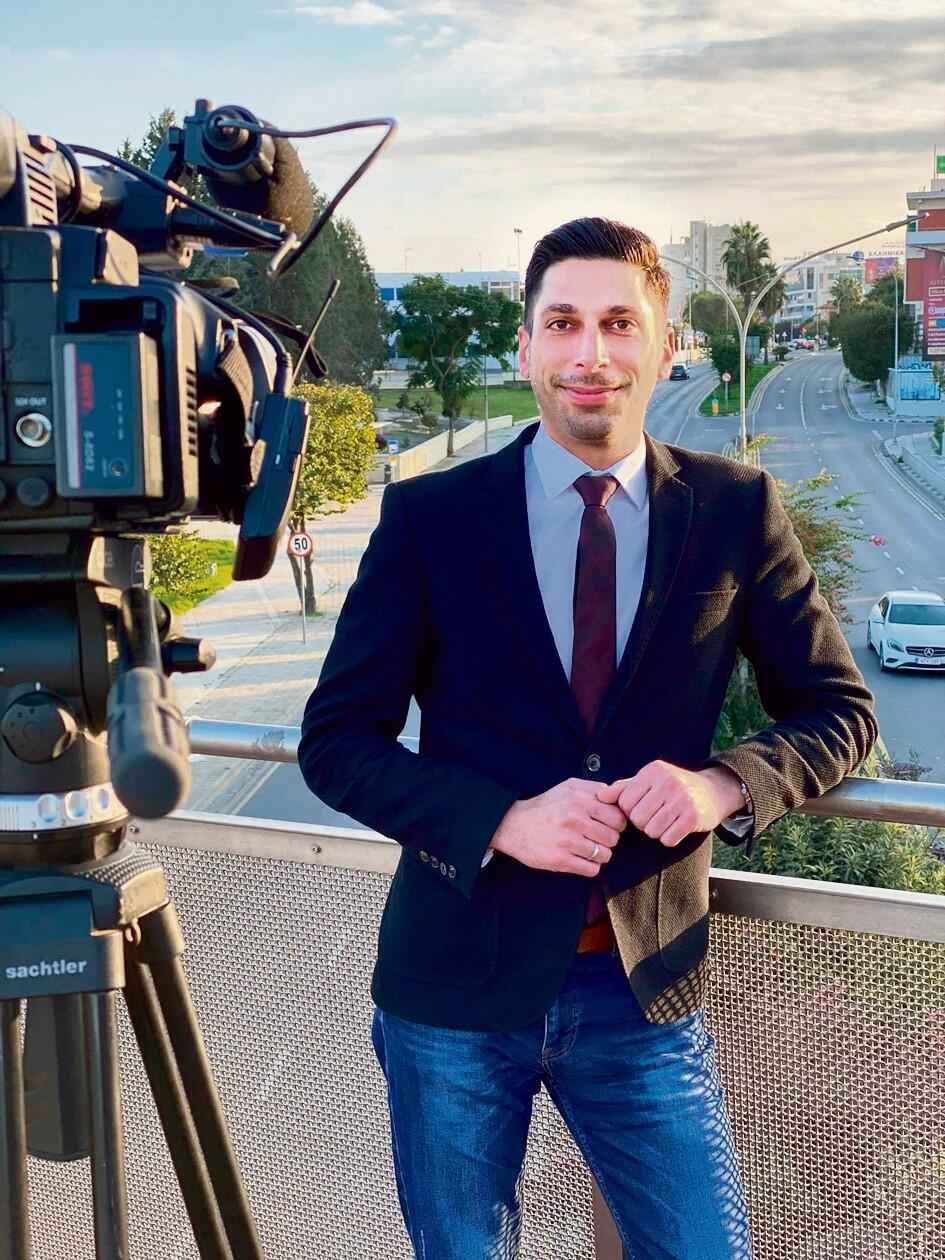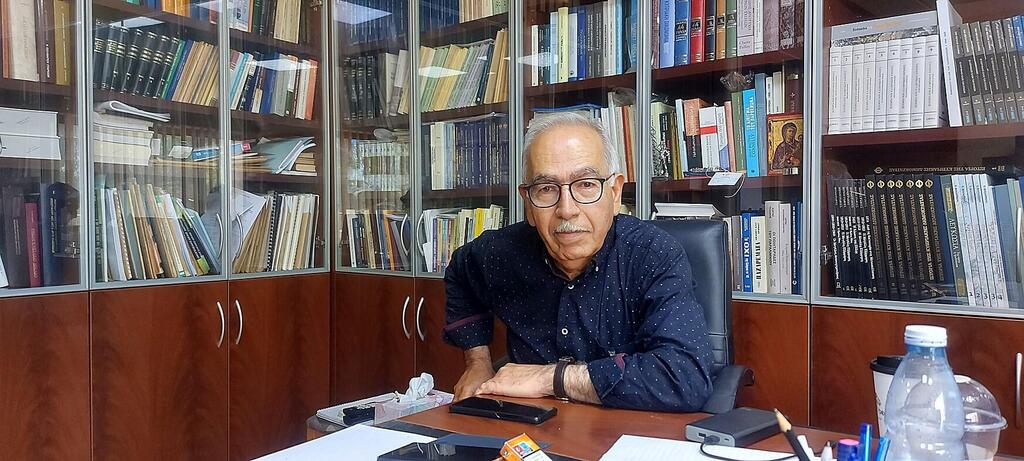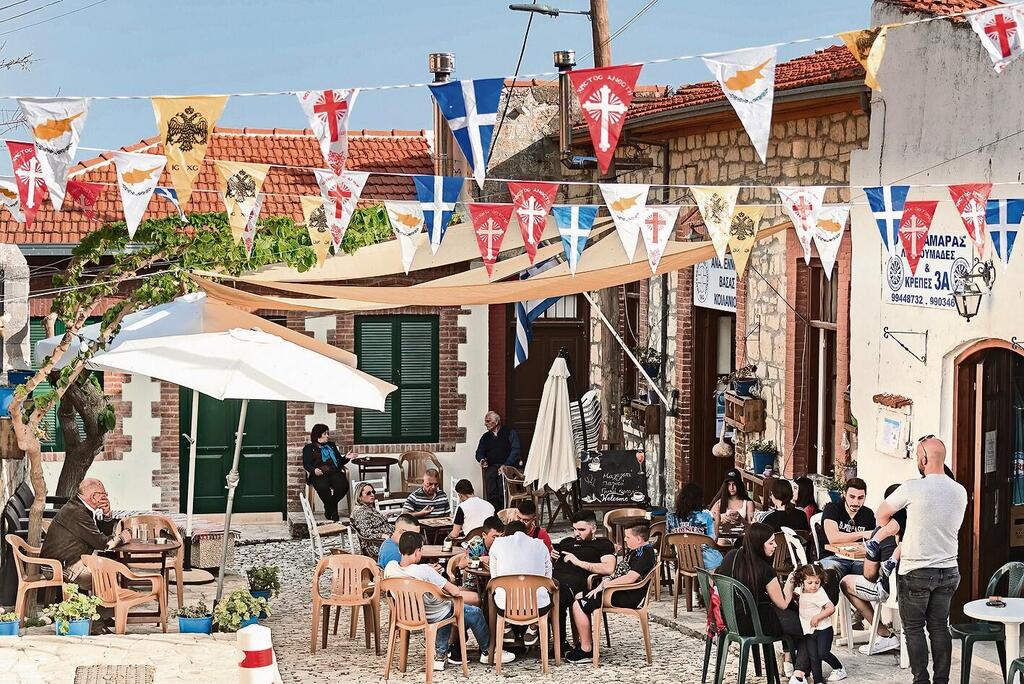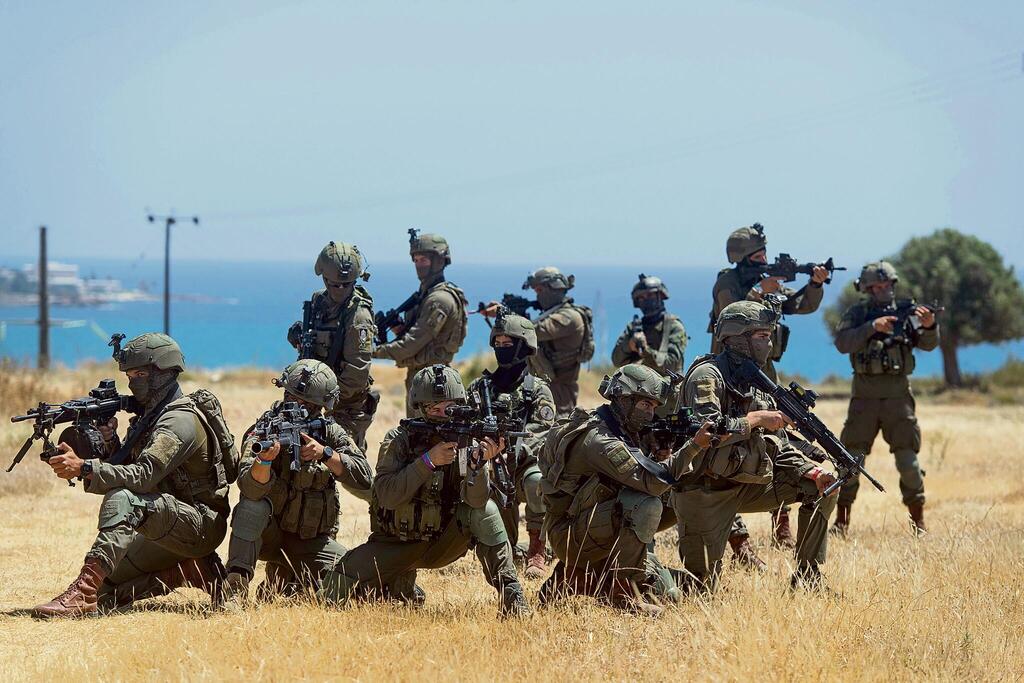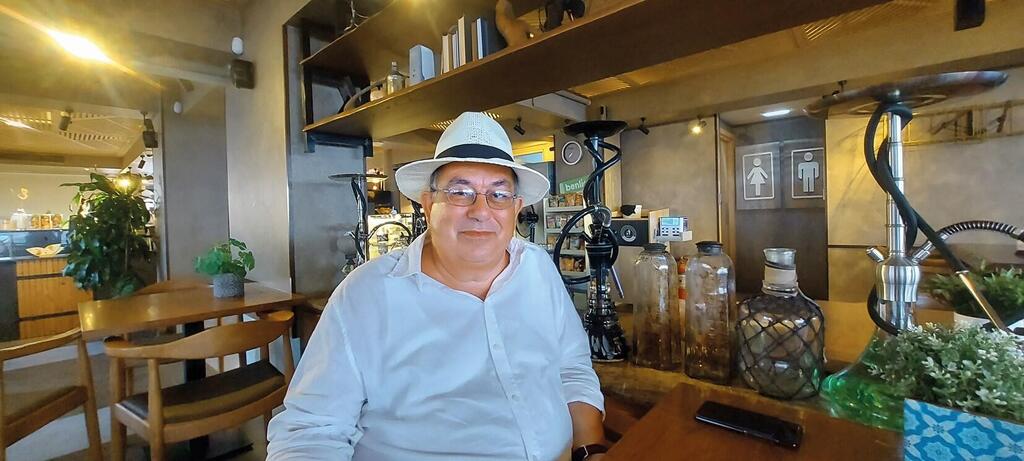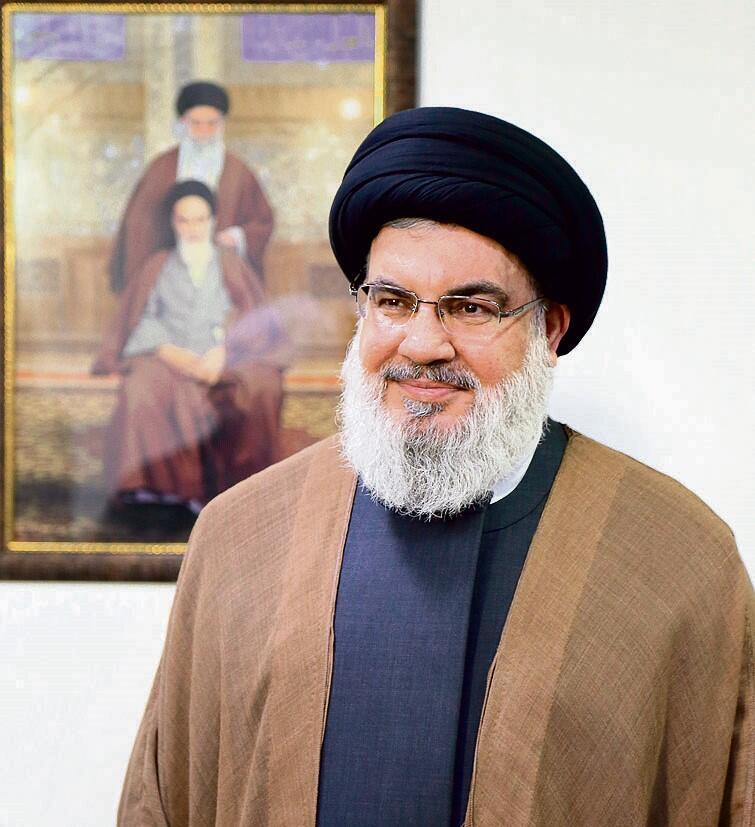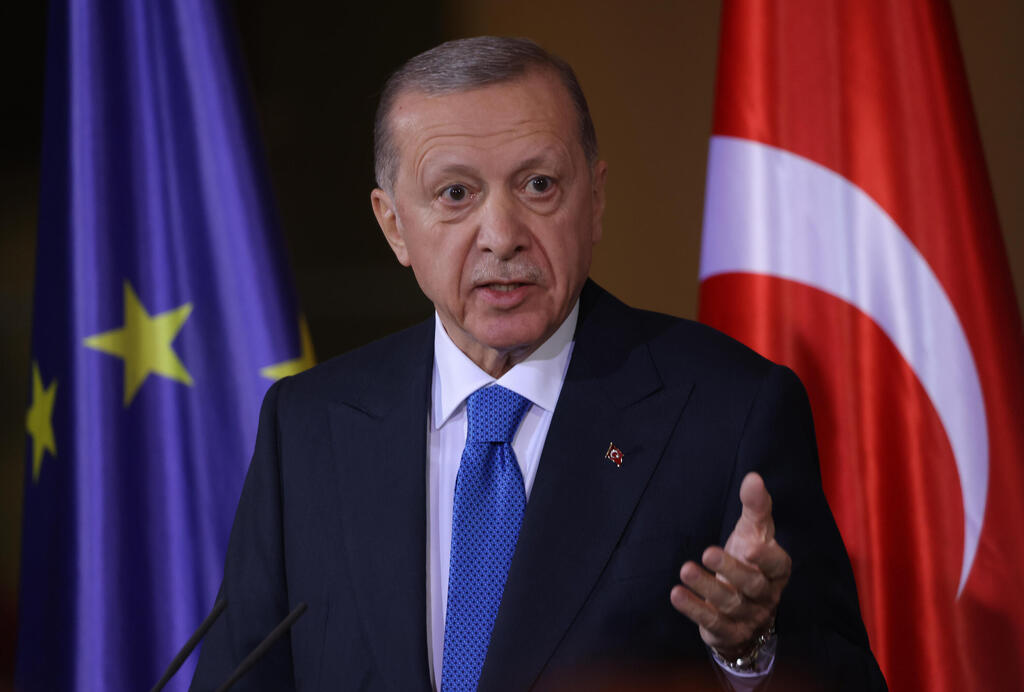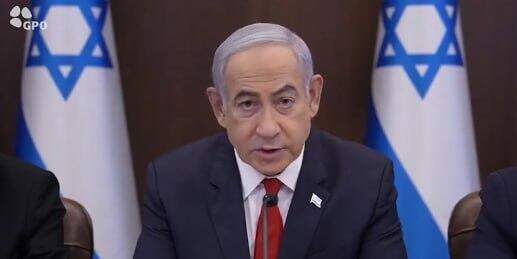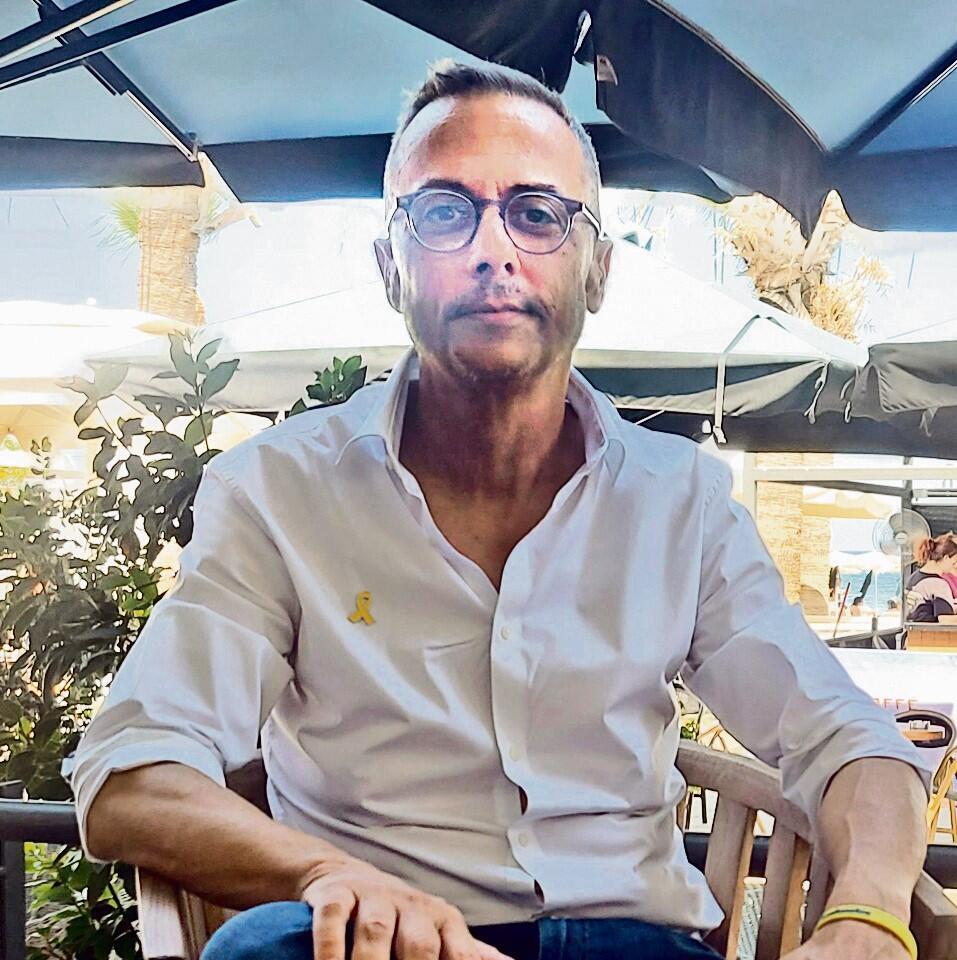"We heard Nasrallah's threats and we didn't understand what he had against us. We said, 'What the hell? Cyprus is a peaceful country that has never attacked or threatened any other country. We are people who sell ice cream on the beach...'" laughs bitterly Nicolas Zannettos, a commentator on international affairs at Alpha TV network.
After all, the situation is anything but funny. It's noontime, the weather is extremely hot and we're sitting in a café on Finikoudes beach in Larnaca. The cold coffee we ordered heats up quickly.
Shortly after the Hezbollah leader's speech, in which he threatened that Cyprus could become a target if it allowed Israel to use its territory in the conflict, I was visiting the neighboring island to find out with government, military, research, tourism and media officials, as well as ordinary Cypriots, how worrisome Nasrallah's threat is, and what effect, if any, it will have on the warm and close relationship between our two countries.
Nasrallah's threats are seen here as more a strategic escalation rather than a reason to open shelters. "He may be crazy," they say here, "but he is not stupid. He has a lot to lose if he attacks an EU country."
The consensus prevalent in Cyprus, Israel and around the world is that the purpose of Nasrallah's threats that if Cyprus allows Israel to use its airports and bases to attack Lebanon, Hezbollah would consider it an act of war was to prevent an escalation by conveying a message to the U.S., UK and the EU, urging them to calm down and restrain Israel.
In the meantime, it seems to have worked well for him. Both Israel and Cyprus have been quick to clarify that there was no likelihood of such a scenario.
"We are not a party to the conflict," said Cypriot President Nikos Christodoulides, who tried to lower the flames. "Cyprus is not part of the problem - but part of the solution."
When Cypriot Ambassador to Israel Cornelius Cornelio was asked whether he was surprised by Nasrallah’s threats, he said: “Yes and no, relations between Israel and Cyprus have never been this strong.
"We are trying to play a modest role regarding the transfer of humanitarian aid to Gaza in close coordination with Israel. I am sure that all of this is not welcome by Hezbollah."
Despite the attempts to calm things down, the potential explosive situation is taken seriously in Cyprus. I meet Zacharias Koullias, deputy chairman of the House Standing Committee, and member of the Democratic Party (DIKO), which is a center-right party, at his law office in the city center. In Cyprus, this is allowed. He chain-smokes Al Capone cigarettes and offers me one as well. The room is filled with smoke, and I get so dizzy that I almost pass out.
"These threats by Nasrallah worry us, the people and the government," Koullias says in Greek, his son Christopheros is translating. "In the past there were Palestinian attacks by the PLO in Cyprus - but this is the first time we're having such direct threats. This is an unforgivable statement."
He recounts that in his first interview as a politician in 1999, when Israel and Cyprus were not close, he was asked who the friends of Cyprus were - he replied: 'Greece and Israel'. "15 years later they asked me 'how did you foresee that.'" Koullias unfolds a map of the Middle East. "There is Israel, Greece and Cyprus - and then half a billion Muslims. Geography is the main thing. The relations between the nations were close before and have become even closer in recent years."
Will this friendship be affected by the threats?
"No. Cyprus keeps its word and its friends."
Nor will it be affected by the war sights showcased in the media?
"This is Israel's war of survival," says Koullias, who is considered a right-wing politician, relative to Cyprus. "War is a bad thing, we all oppose war, but we all understand that it has costs. We understand Israel's suffering, having many enemies."
This is a dangerous time
Back to the beach, the waves don't really seem to mind the commotion. They continue to lap the small island that has seen so many battles and conquerors throughout history. The Assyrians, the Egyptians, the Persians, the Greeks, the Romans, the Byzantines, the Crusaders, the Arabs, the Turks, the British - they were all here, and the conquests never end.
In recent years, the island has been under the invasion of two of the most powerful forces of the modern era: massive global tourism and the great real-estate empire. These are indeed powerful forces, but vulnerable. Even if Nasrallah did not necessarily intend to bomb Cyprus, sometimes one small threat is enough to drive away masses of tourists, entrepreneurs, and investors - and this is very troubling to the Cypriots.
"Yes, there were many 'ifs' in Nasrallah's threat and it is likely that he will not attack us," says Zannettos, "but once he has dragged us in, it's impossible to stay completely calm. Summer is here and it's a very important season for our economy. We expect to have tourists and such threats do not help."
In the meantime, it is not clear if and how much damage has been caused to tourism. Immediately after the threat, reports of mass cancellations of flights and hotel accommodations in Cyprus spread online. Things turned out to be fake news, but the tension is still there. "If a family is debating where to go this summer, this can influence its decision," said Zannettos. "Even my relatives started asking if it was safe to come here. Even if the threat is not real, it causes anxiety."
Anxiety? Less than three hours have passed since I landed in Cyprus, and I can already feel my stress levels going down. I somewhat understand the Israelis who move to live here.
Everyone I talked to stated that this will have no effect on Israel-Cyprus relations; the friendship is strong, the interests are deep, the cooperation is close and extensive: in terms of security (it is important to note the large-scale joint training for the IDF and the Cypriot army that were held on the island's soil, which is very similar to the territory of Lebanon. They too must have had a part in Nasrallah's threat), and also in terms of energy, economy, diplomacy. The relationship has never been better.
But there is less good news: Cypriot public support for Israel - which in recent years has ascended to unprecedented heights of 70 percent, according to polls - is eroding with every photo of either a destroyed neighborhood in Gaza, or children left orphaned, or riots by settlers in the territories or a Palestinian tied to a military jeep in Jenin. We have not yet carried out a reliable and up-to-date poll regarding the support for Israel, and maybe it's better we didn't.
"We certainly understand Israel's need to defend itself after the October 7 massacre, and we understand the difficulty," says Zannettos. "However, what happens in Gaza greatly affects public opinion here. Since we experienced the Turkish invasion in 1974, we are very sensitive to such things, and the sights from Gaza touch us. The Cypriots really don't want war.
"I listen to the Israeli government, but I have trouble understanding. What is the purpose of all this? What do you want, to kill everyone? It is impossible to do such a thing. What is your plan for the day after? When will you say enough is enough? These are questions that everyone here is asking. We support Israel and its defense actions, but you are making it a bit difficult for us... you are losing support."
Zannettos expresses the mindset of many of the people I spoke with. Petros Zarounas, a researcher, an analyst of the Middle East, former executive secretary of Cyprus' Council for Geostrategic affairs, who worked under the former Cypriot president and served as special advisor to the deputy foreign minister, and is now a popular TV commentator, says when we are sitting at Coffee Berry on Kastella Beach: Cyprus is in favor of Israel, that hasn't changed.
"We are with you, against Hamas massacre and in favor of Israel's right to defend itself, and yet, we are in favor of humanitarian aid. At first, you were careful in Gaza, now much less so. I say it as a friend of Israel. We need you, we appreciate the help. But don't ask us for too much," he says.
"We are people with a heart. When we see children dying in Gaza, it affects us, and thus our support for you decreases. People ask how close we should be to Israel. Maybe it's best to keep our distance. We also play politics, and people use the government's support for Israel to attack it. This combination can lead to a further drop in our support for Israel. But I think everything will change once the war is over."
Off the record, many of the interviewees - all enormously pro-Israel - use much harsher words: 'What happened to you guys?'; 'Have you gone crazy?'; 'You've really lost it'; 'Israel is becoming the embarrassing drunk friend of the world that everyone's keeping distance from'. The only luck we have - and I hear this repeatedly - is that most of the Cypriots (Cyprus is a very Christian country) hate the Muslims, and the Turks in particular, much more than they hate us (Israel). "If you fall, we are the next in line," I'm told by Parliament members, taxi drivers, researchers and journalists. The fact that they hate someone more than they hate us is really a very poor consolation.
Zarounas shows me a post displayed on a Greek website that quotes a Lebanese website about a Cypriot delegation that was in Lebanon the same day Nasrallah spoke. "Cyprus and Israel are friends and cooperate on a wide variety of matters - economy, energy, military - and the cooperation is the best than it has ever been. However, we are also close to Lebanon. We try to remain neutral and adopt a cautious policy.
"The threat worried us. It is a serious threat. From the moment Israel threatened to attack Lebanon, things heated up toward a regional war. There are no guarantees that Iran will not intervene. We have enough enemies in the north (that is, Turkey) and we are not looking for more enemies."
"Nasrallah is not stupid," continues Zarounas. "He wanted to send a message - first to the U.S., then to the British and the EU. And also to the Cypriots, in terms of our support for the British." Zarounas is referring to the British Air Force, which maintains two bases on the soil of Cyprus, Akrotiri and Dhekelia, which are considered sovereign territory of the UK, and cover 3% of the land area of Cyprus. One of the bases is closer to the canal Suez, the second to the Mediterranean Sea.
"The bases are indeed British land," says Zarounas, "but they cannot function without the support of the people and government of Cyprus. The British need the infrastructure and consider our needs. For example, in 2012 Cyprus asked Britain not to use these bases to launch offensive strikes on Libya. We really didn't want to be involved and we had good relations with Gaddafi. The British agreed. Even today, if we ask the British not to use them, they will agree. After October 7 the British bases were used to transfer weapons to Israel, with the consent of Cyprus. But back then Hezbollah didn't threaten us. Today they feel more threatened, so they threaten back.
"In the end, the general interest of all parties was to moderate the threat. Including that of Hezbollah. If Hezbollah dares to attack an EU country, they and entire Lebanon will have a lot to lose - including international aid. Hezbollah is part of the regime there and has responsibility. They don't want war either."
You make them sound very reasonable.
"Because they are reasonable, up to a certain extent. Nevertheless, it's hard to predict what goes through their minds. The situation is bad, and they might want to destroy themselves together with their enemies; that's their Shahid (martyr) mentality. It's not our way of thinking. We love life.
"We are in a dangerous time. There are forces that want to take over the region, like Turkey - and this is our biggest fear - and they are aggressive. So, we also need to be strong. This year we mark the 50th anniversary of the Turkish occupation. This makes people rethink the path that Cyprus has taken since then and the decisions that were made. The new generation is asking questions about past decisions, like supporting non-identifying countries. We lost a third of our country.
"We understand that Cyprus needs strong allies. Our support for Greece may also haven't proved itself - it may have been strong in the past, but now it's weak, certainly in relation to Turkey. It (Greece) will not be able to protect us from an invasion and we understand that we need more allies, including Israel, France, the USA, Britain – this is the alliance that is important for us today. The fear of a Turkish invasion is real and strong, but today we are not alone. We are important to others."
Later in the evening, I speak with a senior official in the British Army, who confirms Zarouna's conclusions. "Of course, it is difficult to know what is going through Nasrallah's mind, but that's also my estimation, that this is a strategic move, and he is not interested in bombing Cyprus. The assessment is that he is probably not crazy enough to attack a British base. This would really be the worst mistake of his life. Nasrallah's threat reveals how worried he is about a big war with Israel. The result of such a war will be one: Israeli victory, with the help of its allies."
There is a dynamic in the air of an all-out regional war, not to mention a third world war.
"You're right. You can definitely see how this dynamic is being built. All the forces are gathering. On one side, there's Iran, Russia, Turkey, and China in the back - which also joined the threats a few days after Hezbollah - on the other side there is the USA and the UK, which defend Israel. One may argue that the regional conflict is already happening. But it doesn't have to develop into a world war. Russia doesn't have the resources for another war, I think that China has no such intention. The questions that remain unsolved are Iran, and whether Hezbollah has gone too far. I believe that Israel would rather refrain from such war, but yes - sometimes the dynamics has a life of its own."
That sounds stressful.
"It's a stressful time. Still, in my estimation, the probability is low. Not always the worst scenario realizes."
The conversation with the British officer - and especially its contrast to the calming conversations I held before - drives me to a pub on the beach, where I meet a group of young Cypriots who say that they love Israel, and yet claim that Israel murdered 140 thousand Palestinians in Gaza; they also deny October 7 Hamas sex crimes. I show them the data, but since when has data ever convinced anyone? 'You and I are best friends', say the young Cypriots and invite me for a beer.
The Turkish problem
Besides the sights of war, there are other factors that undermine Cypriot public support for Israel. On July 20, Cyprus will celebrate the 50th anniversary of the Turkish invasion of Cyprus. In 1974, Turkey invaded Cyprus and occupied 37 percent of the northern part of the island. This occupation is a national trauma and an open wound in the Cypriot soul. 1,619 Cypriots - soldiers, women and children - are still missing since then. Hundreds of thousands were evacuated from their homes and had to leave their lands and property behind. To this day, no country in the world, except Turkey, recognizes the occupied part of Cyprus as a country.
What drives the Cypriots crazy is that Israelis, but not only, buy real estate there cheaply, real estate that belongs to the Cypriots. Everyone I talk to reaches this painful subject very quickly.
"The fact that Israeli citizens are buying real estate in the occupied parts of Cyprus," Kollias says, "is a very serious problem." He shows me on the map his family's property that was taken from him. "If they buy here, of course, we have no problem - but if they buy there - it's completely different. Israelis buy our lands illegally. We're not against Israel," he clarifies, "we're against everyone who buys land there. We don't expect this behavior from our friends."
Kollias and others literally get tears in their eyes when they talk about the occupied north; how beautiful it is there, how clear the water is, how delicious the fruits are, how high the mountains are.
In September 2023, an investigation was published in a Cypriot newspaper about the foreigners who purchase properties in the occupied territories. Mainly Israelis, but also Russians, British and Iranians. The news stated that 25,000 acres of land were purchased in the occupied territories through approximately 2,000 companies controlled by Israeli shareholders.
In the same month, Netanyahu visited Cyprus and in an interview with Antenna TV ahead of his visit he also referred to the issue. "We do not have any policy of restricting Israeli businessmen’s activity", he said. "They can go anywhere in the world, and that is what they are doing."
This did not calm down the Cypriots. The president of Cyprus also raised the matter before Netanyahu when he visited Israel. Netanyahu promised to check and get back to him. It did not happen.
Netanyahu was sharply criticized in Cypriot and Greek media. "Mr. Netanyahu cannot state that there is no policy of restriction when the citizens of his country commit illegal acts with stolen property. This is not about the Israelis' 'free business activity', but about a policy of tolerance for illegal activity, which also affects his country. Netanyahu cannot demand from Cyprus such and other things and on the other hand, allow the perpetuation of a critical issue for us. Tel Aviv, for its own interest, is developing good relations with Greece and Cyprus and at the same time is flirting with the occupying Turkey."
By the way, in the same interview with Antenna TV, Netanyahu was presented with information according to which Israelis cooperate with Iranians in the occupied territories. Netanyahu was quick to point out that there is a law prohibiting cooperation with Iranians, but nothing has been done. A month later, October 7 happened, and everything was forgotten.
Last month, it was announced that an Israeli businessman, Simon Mistriel Aykut, 74, founder of the international development and construction company Afik, was arrested in Cyprus on suspicion of illegal trade in Greek land in Turkish Cyprus. He has remained in custody in the capital Nicosia ever since.
Cypriot media added that an arrest warrant was also issued against Yaacov Afik, Aykut’s son and another individual, both involved in projects of the group in occupied Northern Cyprus. The court refused to release Aykut. The Israeli Foreign Ministry is handling his case. This only shows how critical the issue is to Cypriots - and how blind Israel is to the sensitivities of others, including its closest friends.
There isn't even one person that I talked to in Cyprus - from a salesman in a kiosk to a parliament member - who isn't concerned about the issue. I ask everyone the same question they ask me about Israel and the Palestinians: Do you see a solution on the horizon? The answer is the same: 'No.' Only the degree of paranoia varies between those who think that Turkey is still plotting to occupy the entire island and those who are simply desperate by the situation.
In addition to the deals in the territories occupied by Turkey and the sights of the war, there is another thing that is nibbling at the foundations of Cypriot support for us. In many conversations with Cypriots, one could sense faint, but familiar aromas of antisemitism: "The Israelis are very rich," they told me, "They buy all the real estate here. They've got millions." The articles appearing in the Israeli media refer to Cyprus only in terms of a real estate "opportunity", promising them the moon - but in my short visit, I realized that there is another side to it as well.
The real threat: terrorist attacks
Not just Nasrallah's missiles are threatening Cyprus. Hezbollah's (and Iran's) main threat to the island is terrorist attacks. At Mackenzie Beach, one of the most beautiful beaches in the city, I meet Kostis Konstantinou a journalist working for the Hellenic Broadcasting Corporation (ERT), who also writes for media outlets in Germany. A yellow ribbon symbolizing the campaign for Israeli hostages' return is attached to his shirt, a yellow bracelet on his wrist. He is as pro-Israel as I am, maybe even a little more.
Just a week earlier, he returned from a journalistic assignment in Israel. He visited the kibbutzim surrounding the Gaza border, as well as the northern border. Due to his support for Israel, he has already been threatened, apparently by Iranian factors.
The beach in front of us is full of people, the planes above us are landing at the adjacent airport. Konstantinou talks about a pro-Palestinian demonstration that was already held on October 7 in which Palestinians handed out sweets (without saying why).
"History teaches us that Cyprus has always been dragged into conflicts in the Middle East," Konstantinou states. He drinks coffee, I drink the local beer KEO, great beer. "Everything is so close. We are part of everything that's happening, whether we like it or not. During the First Lebanon War, there were PLO attacks here. Even in recent years, several planned terrorist attacks against Jews and Israelis have been prevented."
Just last year, two cases were published: In December 2023 the Cypriot security and law enforcement agencies, in cooperation with the Mossad, thwarted a terrorist infrastructure that planned to carry out attacks against Israeli and Jewish targets in Cyprus. A few months earlier, in June 2023, it was reported that an Iranian attack against Israelis staying in Limassol had been foiled.
"As for Nasrallah, people here don't want to believe that this could happen. We have a denial mechanism," says Konstantinou. "In my opinion, the real threat involves terrorist attacks in Cyprus. Iran has been operating here for many years. I don't think they will attack us, but they may carry out attacks - and this could greatly harm our island, which relies on tourism."
On my last evening in Cyprus, there was a Christian holiday - the Catholic version of Shavuot: for us, it is the reception of the Torah, for them it is the descent of the Holy Spirit. I'm sitting in a tavern eating a kebab, and suddenly there are fireworks! Loud explosions are heard. In Israel, I would probably be stressed, but here it doesn't bother me, it even makes me happy. Everyone around is happy and kind. I look at the sky lit up with multiple colors. How peaceful it is here. When the hell will this happen to us too?



